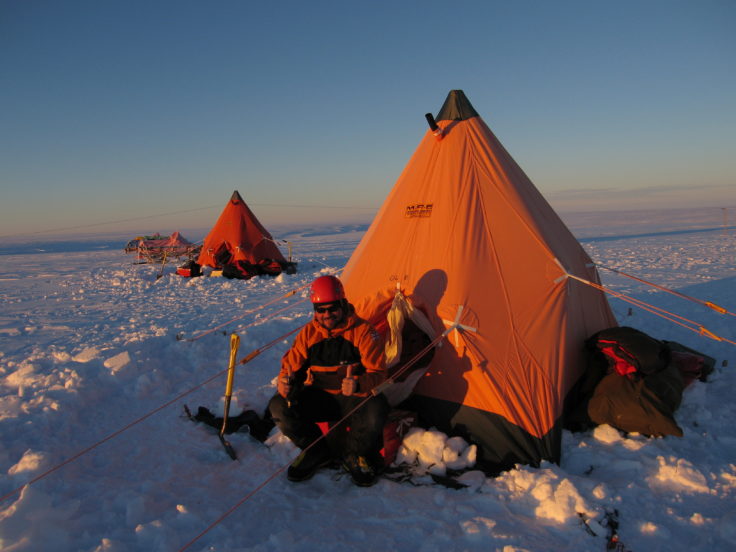4 January, 2016 Flichner Ice Shelf
Life in Antarctica can be difficult but strangely the more difficult it is, the easier it becomes. Life starts to be simple. One only has to do whatever it takes. The objective can be to fulfill the scientific goals, to overcome equipment failures or quite simply to stay healthy, to stay alive. There’s satisfaction in it, there’s purpose. The opposite is also true. The easier things are, the harder it seems to achieve the same level of satisfaction.
What could be easier than doing nothing but wait and therefore what could be harder? But waiting is part of the game here. Weather delays, aircraft requiring maintenance, field parties delayed, spare parts on order. There can be a lot of waiting. A lot of time thinking. A lot of time with your conscience, so it had better be clear! When the going is tough you just grit your teeth and get going. There is no such remedy for a lack in mental robustness. Mental strength is what it takes, that or an unprecedented level of blissful ignorance.
While the rest of the continent seemed to be having terrible weather we had no such problems. Before long we were in the right place at the right time but unfortunately no one else was. Thus commenced the waiting. The first few days were fine, welcome in fact, a chance to recover, catch up on some sleep. After the first week all of those little jobs that needed doing… they were done. As we started to approach our first month of waiting however, the way each team mate dealt with the isolation became more and more apparent. It’s curious how being in the middle of a vast open wilderness can feel like a cage. I skied around camp for hours at a time clocking up hundreds of kilometres like a hamster runs on its wheel, Sverrir would put on his insulated overalls and just stand outside, in the wind, looking at the fog. Bruno dismantled things that still worked but weren’t ‘quite right’ and then reassembled them until finally he resorted to placing stickers around the caboose that may be useful to someone, someday. Paul found the time useful to catch up on paper work and coped the best out of all of us.

Our imaginations had got the better of us over time and when the first aircraft arrived we were excited at all the potential letters and food items that may have been sent from base, but unfortunately there was nothing. Everyone has a breaking point and that point occurs at different times for different people and it’s the smallest thing that can cause one to give way. In our case; for Sverrir it was the lack meat in the diet, for Bruno it was a frozen zip on a rucksack that he couldn’t open, for Paul it was one split tea bag too many. For me it was opening an envelope that arrived with the aircraft with my name on it. I slowly peeled it open, hoping for one solitary cigarette that I’d requested over HF radio to ease the pain but finding nothing but a printed cargo note.
The aircraft was keen to depart due to deteriorating weather and they left without saying goodbye. We remained, to wait once again not knowing how long for. I was stunned into silence. There are still dark days in the land of the midnight sun.
Field Guide Ashly Fusiarski is supporting the Filchner Ice Shelf System project which aims to determine how a large sector of the Antarctic Ice Sheet will evolve in a warming world.
